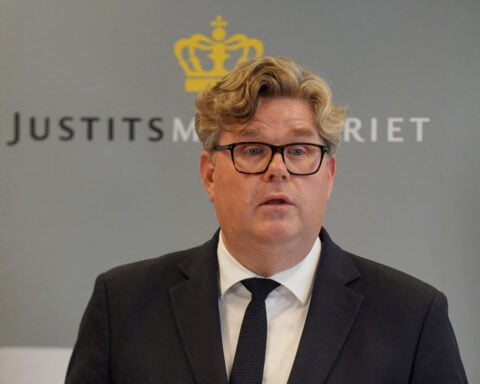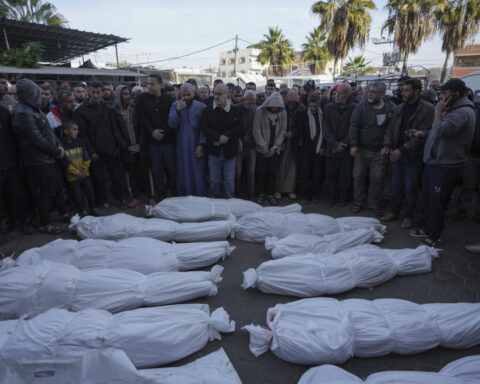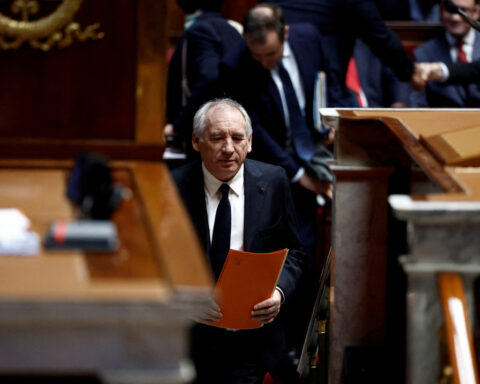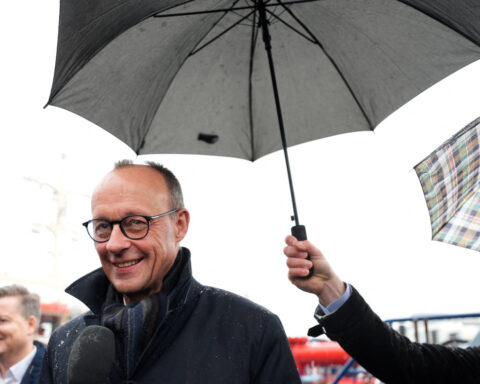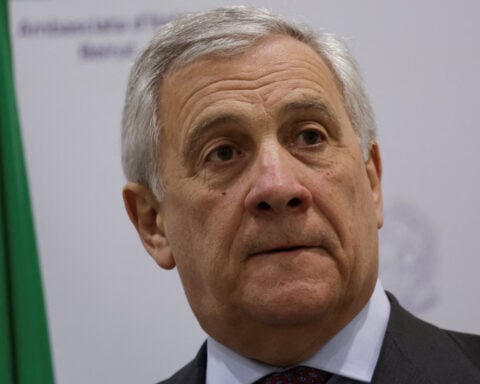DUBLIN (Reuters) - Ireland's main opposition party, Sinn Fein, outlined a stricter immigration policy on Tuesday after identifying its lack of clarity on the issue as a major reason for a poor showing at local council elections last month.
Sinn Fein's commanding three-year opinion poll lead melted away in the election run-up. It picked up just 12% of the vote as more people seized on immigration as their top concern rather than affordable housing, an issue which Sinn Fein has dominated.
It proposed that an audit of local services such as housing, transport, health and education be required before accommodation centres for asylum seekers are located in a community, with local people also allowed to make submissions on the proposals.
A lack of community engagement has been cited as one of the reasons for protests at proposed accommodation centres - some of which have turned violent in recent months - as the government struggles to deal with record levels of refugees.
"We were told in no uncertain terms that people and the communities that we represent weren't hearing us loudly enough, saying simply that they don't have the resources, the support that they require," Sinn Fein leader Mary Lou McDonald told a news conference, referring to a review of its poor election.
Opinion polls suggest the left-wing party has been caught between its traditional working-class voters more sceptical about immigration and its newer, younger middle-class supporters concerned about migrant rights.
Sinn Fein's new proposals also included an unwinding of what it described as a "two-tier system", in which Ukrainian refugees receive more generous social welfare benefits than asylum seekers from other countries.
This measure would kick in when the temporary EU-wide rights for those fleeing Russia's 2022 invasion of Ukraine to stay and work in the bloc expire, which is due to happen in March 2026.
Parliamentary elections are due in Ireland by March 2025, but most analysts expect the government to call a poll in November this year.
(Reporting by Padraic Halpin; editing by Mark Heinrich)

 Few US adults confident Justice Department and FBI will act fairly under Trump, AP-NORC poll finds
Few US adults confident Justice Department and FBI will act fairly under Trump, AP-NORC poll finds
 Edmunds highlights the top car-tech trends from CES 2025
Edmunds highlights the top car-tech trends from CES 2025
 Joann files for bankruptcy — again
Joann files for bankruptcy — again
 Australian Open: Last year’s finalist Zheng Qinwen stunned in biggest upset so far
Australian Open: Last year’s finalist Zheng Qinwen stunned in biggest upset so far
 German economy, Europe’s largest, shrinks for second straight year
German economy, Europe’s largest, shrinks for second straight year
 Comoros ruling party wins parliamentary elections, opposition rejects results
Comoros ruling party wins parliamentary elections, opposition rejects results
 Confused about all the tax changes in the past decade? Just wait
Confused about all the tax changes in the past decade? Just wait
 US inflation likely remained elevated last month, threatening interest rate cuts
US inflation likely remained elevated last month, threatening interest rate cuts
 Steelers head coach Mike Tomlin has ‘no response’ to questions over his job after another disappointing playoff loss
Steelers head coach Mike Tomlin has ‘no response’ to questions over his job after another disappointing playoff loss
 Coors Light is changing its name
Coors Light is changing its name

